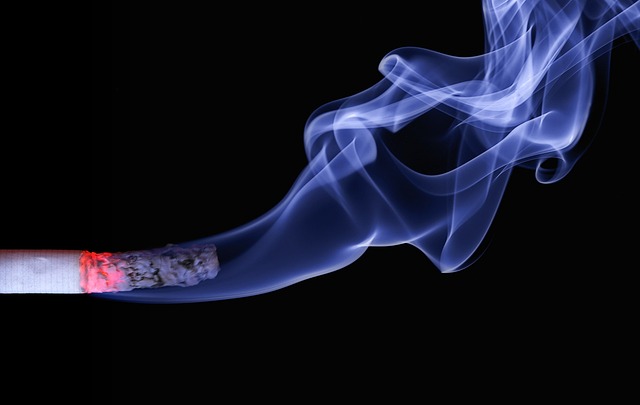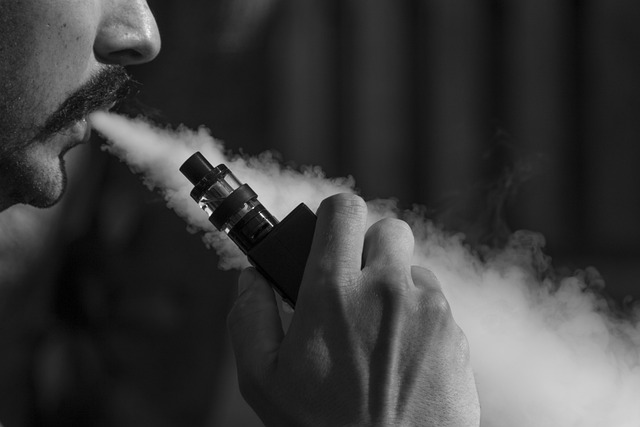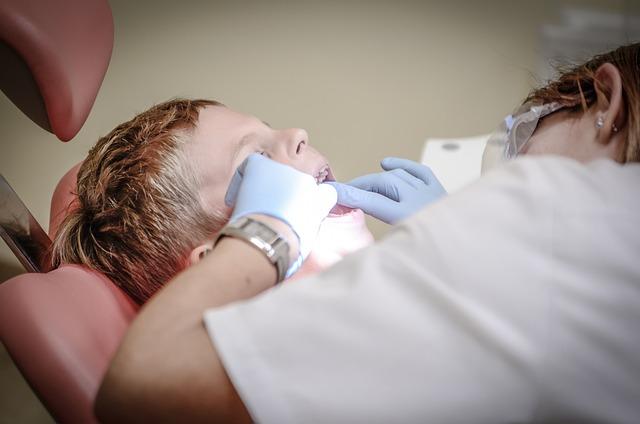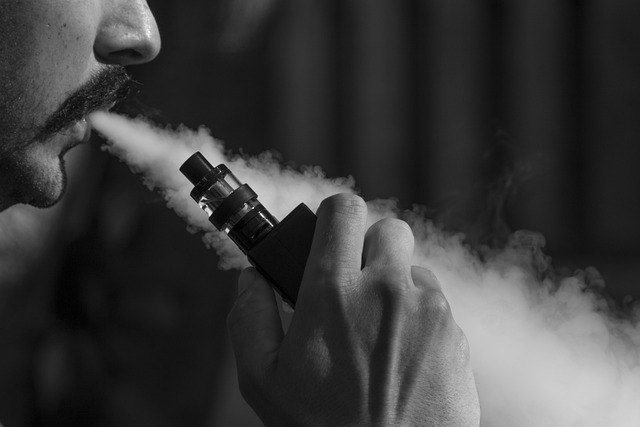How Long After Tooth Extraction Can I Vape? Facts and Tips
After undergoing a tooth extraction, it’s only natural to wonder when you can resume your favorite activities, such as vaping. Whether you’re a devoted vaper or just starting to explore the world of electronic cigarettes, understanding the appropriate timeline for vaping after tooth extraction is crucial to ensure a smooth recovery. In this article, we will dive into the facts and tips surrounding this topic, providing you with the confidence and knowledge you need to make informed decisions. So, let’s clear the air and get started on your road to a speedy recovery.
1. Understanding the Healing Process: A Guide to Tooth Extraction Recovery
After undergoing a tooth extraction, it is crucial to understand the healing process to ensure a smooth recovery. Here is a comprehensive guide that will help you navigate through the journey of tooth extraction recovery:
1. Follow post-operative instructions: Your dentist will provide you with specific instructions to follow after the tooth extraction procedure. It is vital to adhere to these instructions to promote healing and prevent complications. Some common instructions may include:
- Take prescribed pain medication as directed.
- Apply ice packs to reduce swelling.
- Avoid drinking through a straw or rinsing vigorously for the first 24 hours.
- Avoid smoking or using tobacco products during the healing process.
2. Manage pain and swelling: It is normal to experience some discomfort and swelling after a tooth extraction. To alleviate these symptoms, you can:
- Take over-the-counter pain relievers, such as ibuprofen, as recommended by your dentist.
- Apply a cold compress to the affected area for 15 minutes at a time.
- Elevate your head while resting to minimize swelling.
- Avoid hot or spicy foods that can irritate the extraction site.
2. The Impact of Vaping on Post-Extraction Healing: What You Need to Know
Vaping has become increasingly popular in recent years, but its impact on post-extraction healing is a topic that requires careful consideration. While traditional smoking has long been known to impede the healing process, the effects of vaping on oral health are still being studied. Here’s what you need to know:
1. Potential Delayed Healing: Preliminary research suggests that vaping can potentially delay the healing process after tooth extraction. The chemicals and toxins present in e-cigarette vapor may hinder the body’s ability to heal wounds, leading to prolonged recovery times. This is particularly concerning for individuals who have recently undergone oral surgery and are relying on their body’s natural healing mechanisms.
2. Increased Risk of Infection: Vaping has been found to increase the risk of developing infections following tooth extraction. The heat from the vapor, coupled with the chemicals present, can create an environment conducive to bacterial growth. This can lead to complications such as dry socket or infection at the extraction site, which can significantly prolong the healing process and cause discomfort.
In conclusion, while further research is needed to fully understand the impact of vaping on post-extraction healing, it is crucial to be aware of the potential risks involved. If you are a frequent vaper or considering vaping, it is advisable to consult with your dentist or oral surgeon to discuss the potential impact on your oral health and healing process.
3. Timeline for Safe Vaping: When Can You Resume After Tooth Extraction?
After undergoing a tooth extraction, it’s important to take proper care of your oral health to ensure a smooth recovery. If you are a vaper, you might be wondering when it is safe to resume vaping after this procedure. While it’s crucial to consult with your dentist or oral surgeon for personalized advice, here is a general timeline to give you an idea of when you can safely vape again.
1. Immediate Post-Extraction Period:
- During the first 24 to 48 hours, it is recommended to avoid vaping altogether.
- Engaging in vaping too soon after the extraction can disrupt the blood clot formation, leading to complications like dry socket.
- It’s crucial to allow your mouth to heal properly and minimize the risk of infection before reintroducing vaping.
2. First Week of Recovery:
- During the first week, it is best to refrain from vaping to avoid any potential complications.
- The extraction site needs time to heal, and introducing foreign substances like vape aerosols may hinder the recovery process.
- Focus on maintaining good oral hygiene practices, including gentle brushing, rinsing with saltwater, and following any specific instructions from your dentist.
4. Factors to Consider: How Smoking and Vaping Affect Your Oral Health
When it comes to oral health, it’s essential to consider the impact of smoking and vaping. Both smoking and vaping can have detrimental effects on your oral health, causing a wide range of oral problems. Here are some factors to consider:
1. Stained Teeth: Smoking and vaping can lead to yellowing and staining of your teeth. The nicotine and tar present in cigarettes and e-cigarettes can leave stubborn stains on your teeth, making them appear discolored and unattractive.
2. Gum Disease: Smoking and vaping increase the risk of gum disease. The chemicals in tobacco products can irritate and inflame the gums, leading to gum recession, gum infections, and even tooth loss. Additionally, smoking and vaping can hinder the healing process after dental procedures, making it harder for your gums to recover.
3. Bad Breath: Tobacco products, including cigarettes and e-cigarettes, can cause bad breath. The chemicals in these products can linger in your mouth and throat, leaving an unpleasant odor that can be difficult to eliminate. This can negatively impact your social interactions and overall confidence.
4. Oral Cancer: Smoking and vaping are major risk factors for oral cancer. The carcinogens present in tobacco products can damage the cells in your mouth, increasing the likelihood of developing oral cancer. It’s important to note that vaping, although considered a safer alternative to smoking, still carries potential risks for oral cancer.
5. Dry Mouth: Both smoking and vaping can contribute to dry mouth. The heat and chemicals from cigarettes and e-cigarettes can reduce saliva production, leading to a dry mouth. Dry mouth can increase the risk of tooth decay, gum disease, and other oral health problems.
5. Expert Tips for a Smooth Recovery: Precautions and Best Practices
When it comes to recovering from any procedure or surgery, taking the necessary precautions and following best practices can greatly contribute to a smoother and faster recovery. Here are some expert tips to help you navigate this crucial phase:
- Follow your doctor’s instructions: Your doctor knows best, so it’s important to carefully follow any post-operative instructions provided. These instructions may include medication schedules, wound care, physical activity limitations, and dietary restrictions. Adhering to these guidelines will optimize your healing process.
- Take it easy: Rest is essential for recovery. Give your body the time it needs to heal by taking it easy and avoiding strenuous activities. Overexertion can result in complications, delayed healing, and increased discomfort. Listen to your body and gradually increase your activity level as advised by your healthcare professional.
- Maintain proper hygiene: Keeping the incision site clean and dry is crucial for preventing infections. Follow the recommended cleaning routine provided by your doctor, and be diligent about washing your hands before touching the wound or changing dressings. If you notice any signs of infection, such as redness, swelling, or discharge, contact your healthcare provider immediately.
- Eat a balanced diet: Proper nutrition plays a vital role in the healing process. Ensure your diet includes a variety of fruits, vegetables, lean proteins, and whole grains. These foods provide essential vitamins, minerals, and antioxidants that support tissue repair and strengthen your immune system.
- Avoid smoking and excessive alcohol consumption: Smoking and excessive alcohol consumption can impede the healing process and increase the risk of complications. It’s best to refrain from these habits during your recovery period to promote optimal healing and minimize the chances of setbacks.
By following these expert tips, you can take proactive steps to ensure a smooth and successful recovery. Remember, each person’s recovery journey is unique, so always consult with your healthcare provider for personalized advice and guidance.
6. Common Misconceptions: Debunking Myths About Vaping After Tooth Extraction
Vaping after a tooth extraction has become a subject of debate, with several misconceptions surrounding its effects on the healing process. Here, we debunk some common myths about vaping after tooth extraction, providing you with accurate information to make informed decisions.
Myth 1: Vaping is harmless and won’t affect the healing process.
Contrary to popular belief, vaping can have negative impacts on the healing process after a tooth extraction. The chemicals present in e-cigarettes and vaping devices, including nicotine and other additives, can restrict blood flow and impair the body’s ability to heal properly. Additionally, the heat generated by vaping devices can cause dry sockets, a painful condition that delays healing. It is essential to understand that vaping should be avoided during the critical healing period to ensure optimal recovery.
Myth 2: Vaping without nicotine is safe after a tooth extraction.
While it may seem logical that vaping without nicotine would be less harmful, it is important to note that even nicotine-free vaping liquids contain other potentially harmful chemicals. These chemicals can still impede the healing process and increase the risk of complications. It is best to abstain from vaping altogether to support the healing of the extraction site and prevent any unnecessary complications during the recovery phase.
7. Final Thoughts: Prioritizing Oral Health and Making Informed Decisions
In conclusion, prioritizing oral health is essential for maintaining overall well-being. By taking proactive measures and making informed decisions, individuals can ensure a healthy mouth and a beautiful smile. Here are some key points to consider:
- Regular dental check-ups: Visiting the dentist regularly is crucial for early detection and prevention of oral health issues. Schedule bi-annual check-ups to ensure any problems are addressed promptly.
- Effective oral hygiene: Brushing your teeth twice a day with a fluoride toothpaste and flossing daily are simple yet effective ways to maintain oral health. Don’t forget to also clean your tongue and use mouthwash for added freshness.
- Proper nutrition: A balanced diet that includes plenty of fruits and vegetables, as well as limiting sugary and acidic foods, can greatly contribute to good oral health.
- Avoid tobacco and excessive alcohol consumption: Both tobacco and excessive alcohol intake can lead to a range of oral health problems, including gum disease, tooth decay, and oral cancer.
By following these guidelines and seeking professional advice when necessary, individuals can prioritize their oral health and enjoy a lifetime of healthy smiles. Remember, a healthy mouth is a reflection of overall well-being!
Frequently Asked Questions
Q: How long do I have to wait after a tooth extraction before I can start vaping?
A: It is recommended to wait at least 48 to 72 hours after a tooth extraction before you resume vaping.
Q: Why is it necessary to wait before vaping after a tooth extraction?
A: Waiting is crucial to allow the extraction site to heal properly. Vaping too soon can potentially disrupt the blood clot that forms in the socket, leading to a condition called dry socket, which is both painful and delays the healing process.
Q: Can I vape immediately after a tooth extraction if I avoid the extraction site?
A: No, it is still advisable to wait a few days before vaping, regardless of whether you avoid the extraction site or not. The suction created while vaping can still pose a risk to the blood clot and the overall healing process.
Q: Are there any specific precautions I should take while vaping after a tooth extraction?
A: Yes, it is important to be cautious when vaping after a tooth extraction. Avoid drawing too hard on your vape device, as excessive suction can dislodge the blood clot. Additionally, be mindful of the temperature of your vape liquid, as extreme heat can irritate the extraction site.
Q: What are the signs of a dry socket and how can I prevent it?
A: Symptoms of a dry socket include severe pain, bad breath, an unpleasant taste in the mouth, and an empty-looking socket. To prevent dry socket, it is essential to follow your dentist’s post-extraction instructions, such as avoiding smoking or vaping, maintaining good oral hygiene, and not rinsing vigorously for the first 24 hours.
Q: Can I use nicotine-free vape products after a tooth extraction?
A: While nicotine-free vape products may not have the same impact on healing as those containing nicotine, it is still recommended to wait the recommended timeframe before using any vaping products. This allows for proper healing and minimizes the risk of complications.
Q: Can I use other forms of nicotine replacement therapy after a tooth extraction?
A: It is best to consult with your dentist or oral surgeon regarding the use of nicotine replacement therapy after a tooth extraction. They will provide guidance based on your specific situation, ensuring the healing process is not compromised.
Q: How can I manage my nicotine cravings during the waiting period?
A: To manage nicotine cravings during the waiting period, you can explore alternative methods such as nicotine patches, gum, or lozenges. It is crucial to discuss these options with your dental professional to determine the most suitable approach for your situation.
Q: Is it safe to vape after a tooth extraction if I cover the extraction site with gauze or cotton?
A: While covering the extraction site with gauze or cotton may provide some protection, it is still recommended to wait the recommended timeframe before vaping. It is essential to allow the socket to heal properly without any potential disruption caused by vaping.
Q: What should I do if I experience prolonged pain or complications after vaping following a tooth extraction?
A: If you experience prolonged pain or complications after vaping following a tooth extraction, it is crucial to contact your dentist or oral surgeon immediately. They will be able to assess the situation and provide appropriate guidance or treatment to address any potential issues.
Wrapping Up
In conclusion, it is crucial to exercise caution and prioritize your oral health when it comes to vaping after a tooth extraction. While it may be tempting to resume your vaping habits immediately, it is important to wait until your mouth has fully healed. This typically takes around 48 to 72 hours, but consulting with your dentist for personalized advice is always recommended.
Remember, the suction created during vaping can disrupt blood clot formation and hinder the healing process, leading to potential complications such as dry socket. Patience is key, as allowing ample time for proper healing will ensure a smooth recovery and minimize any potential risks.
During the healing period, it is advisable to avoid vaping altogether or opt for alternative nicotine delivery methods, such as patches or gum. Additionally, maintaining good oral hygiene practices, including regular brushing and rinsing with a saltwater solution, will aid in the healing process.
Always consult with your dentist or oral surgeon for specific guidance in your unique situation. Their professional expertise will provide you with the most accurate advice tailored to your needs.
Prioritizing your oral health and following these guidelines will help ensure a safe and successful recovery after tooth extraction, while still allowing you to enjoy your vaping experience in the long run.





